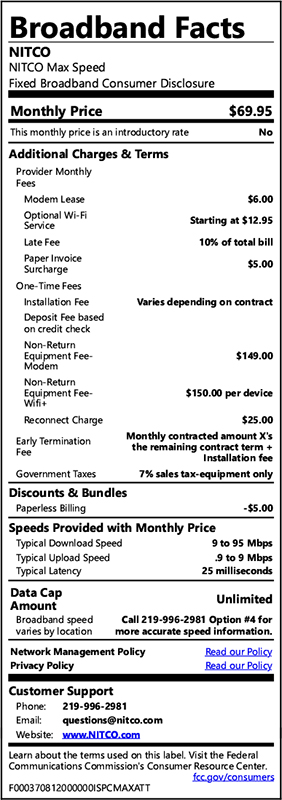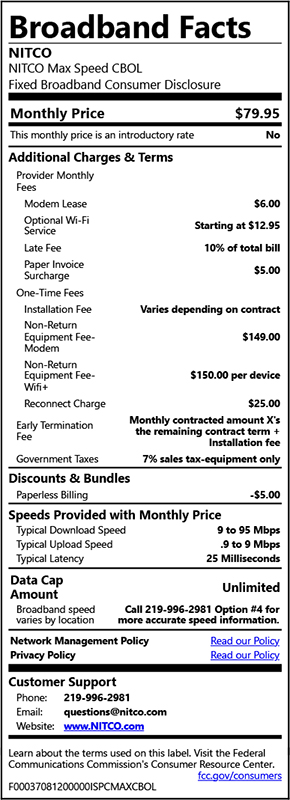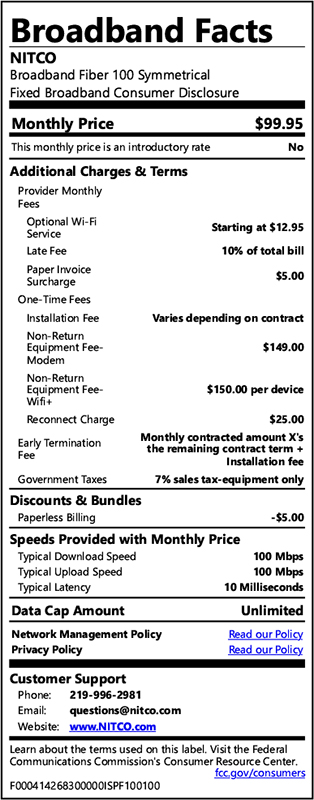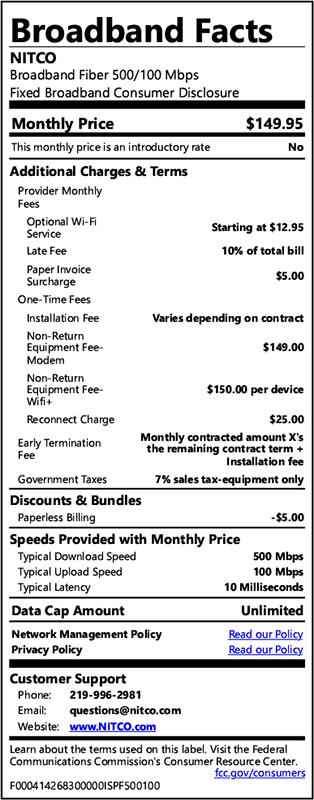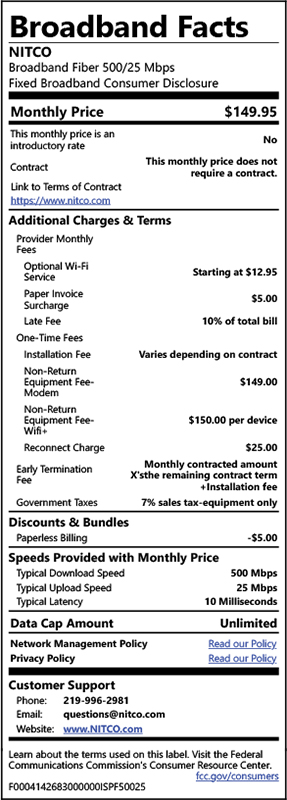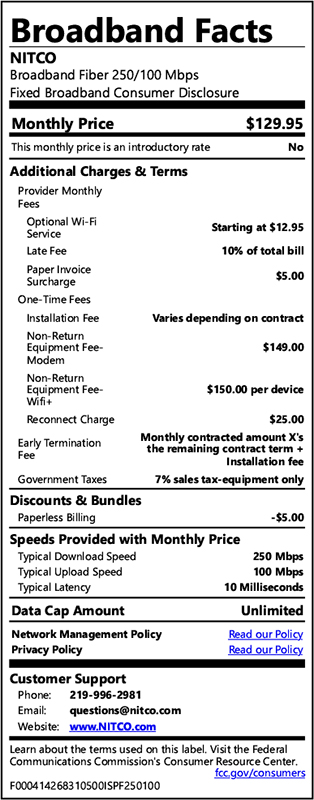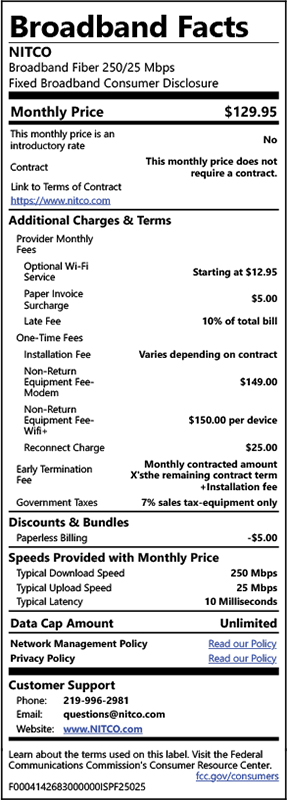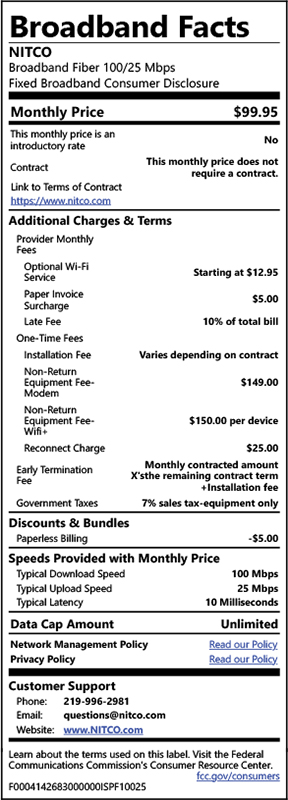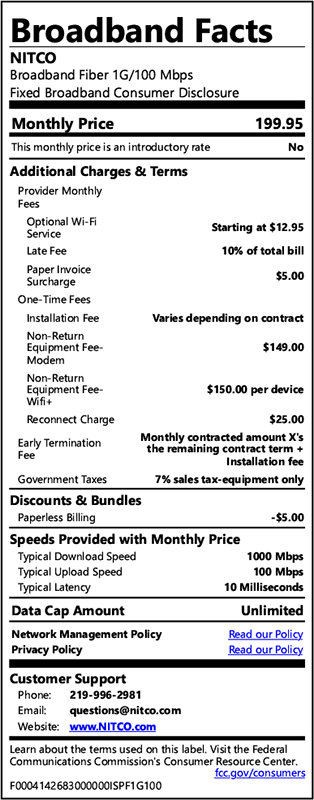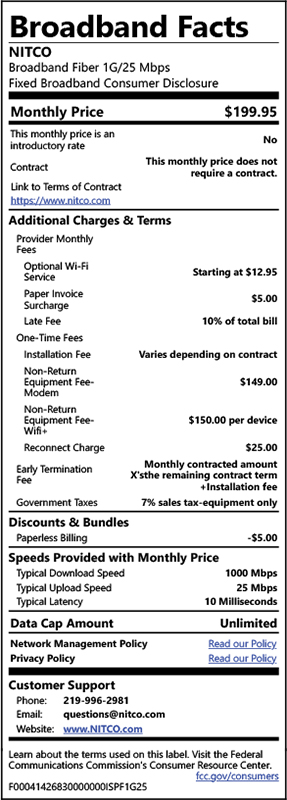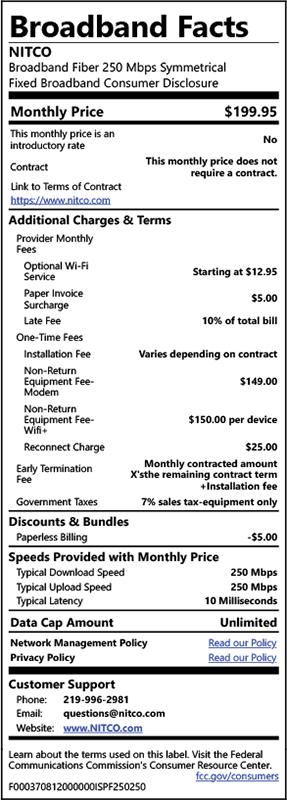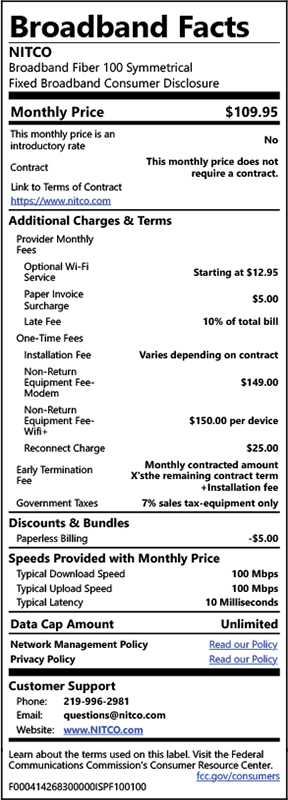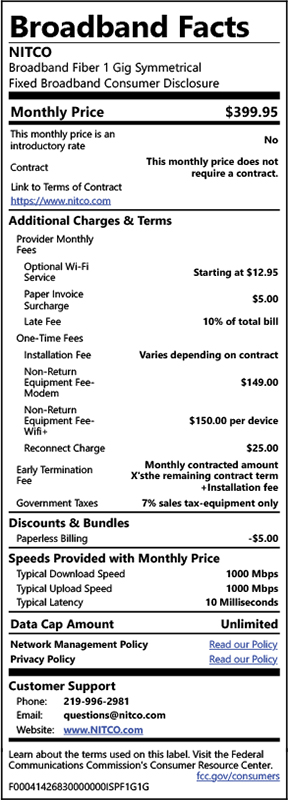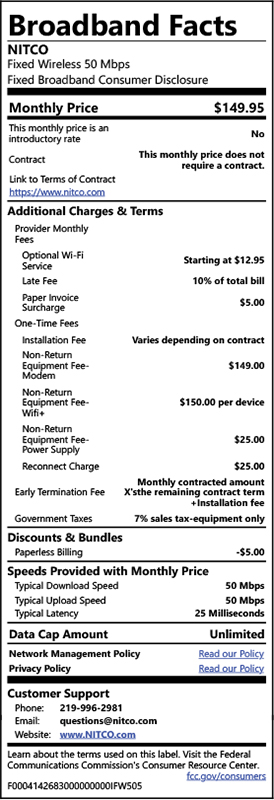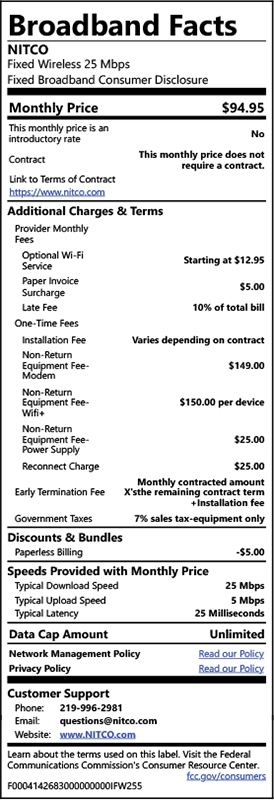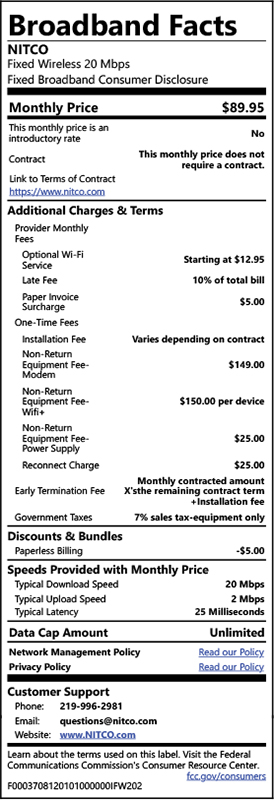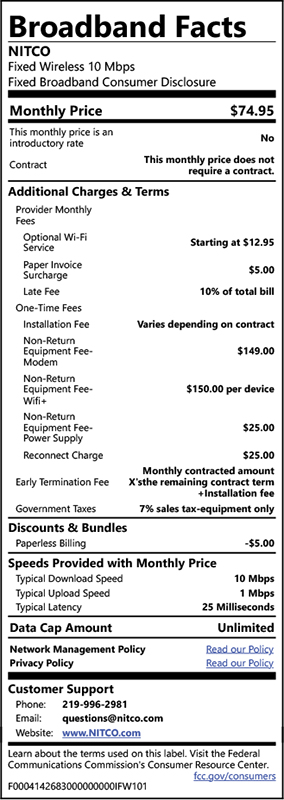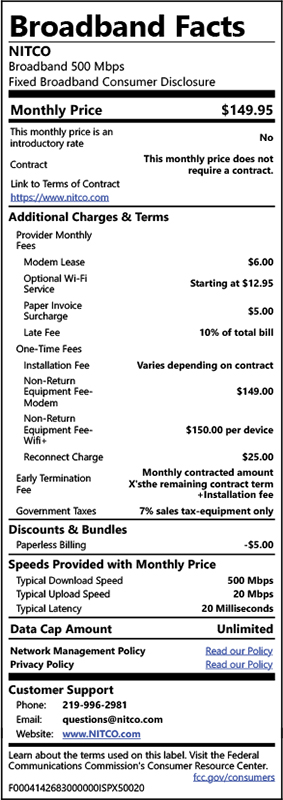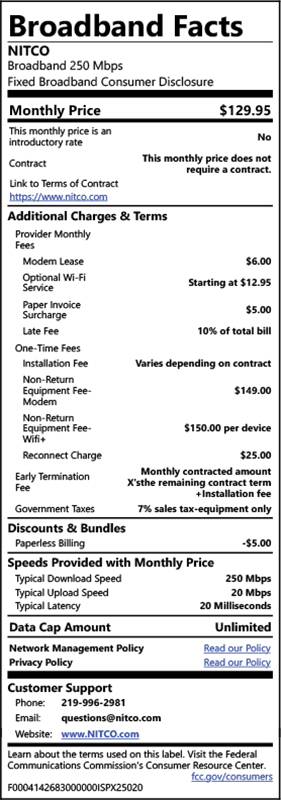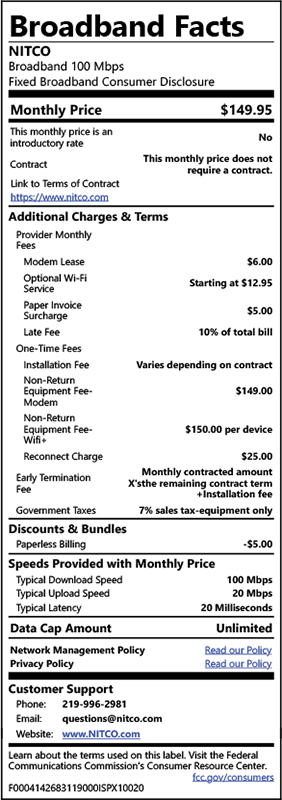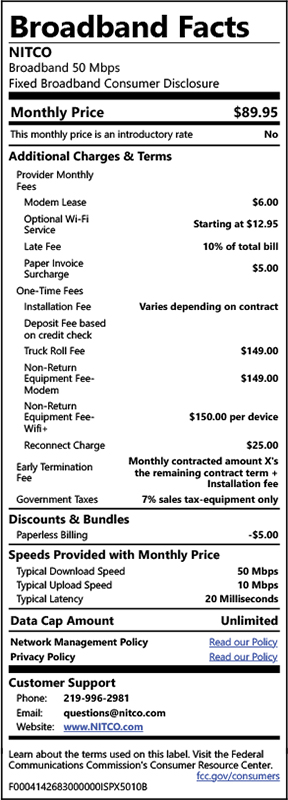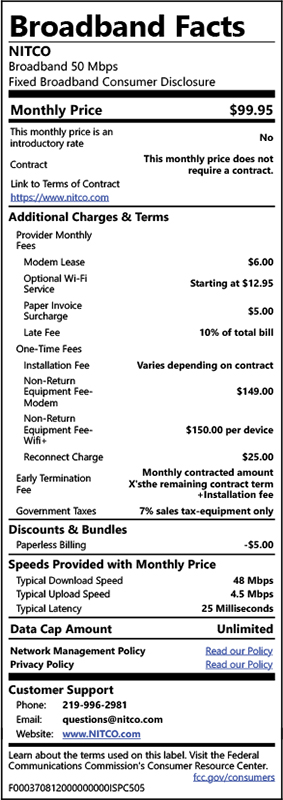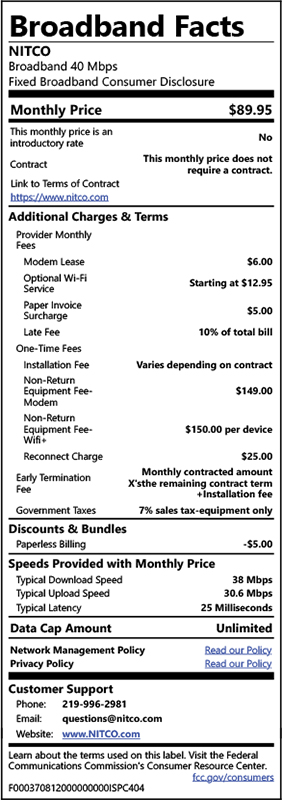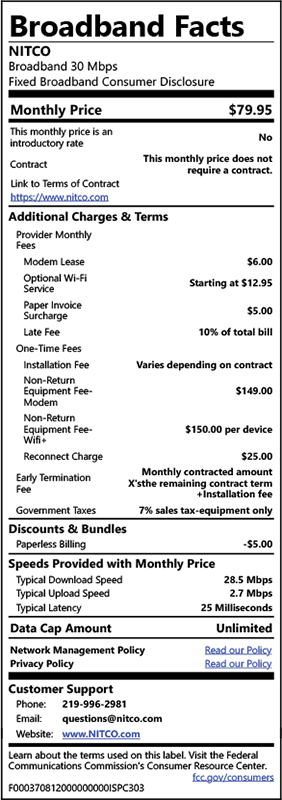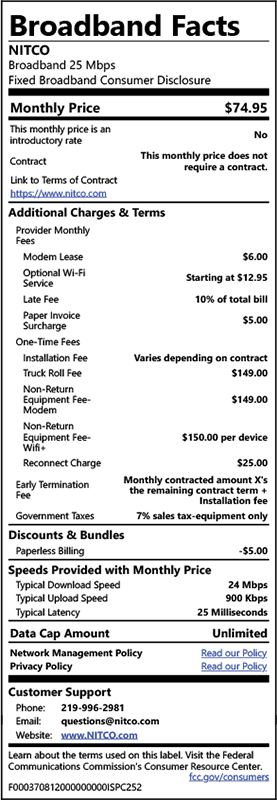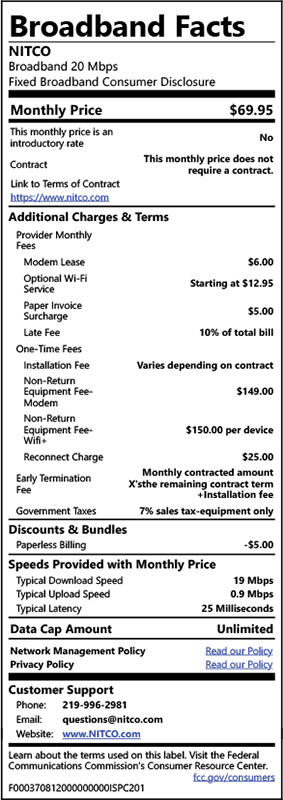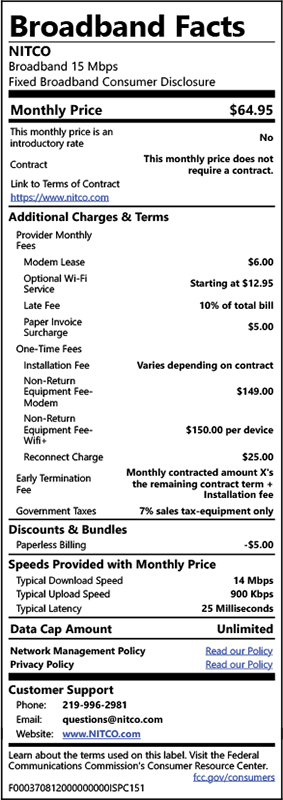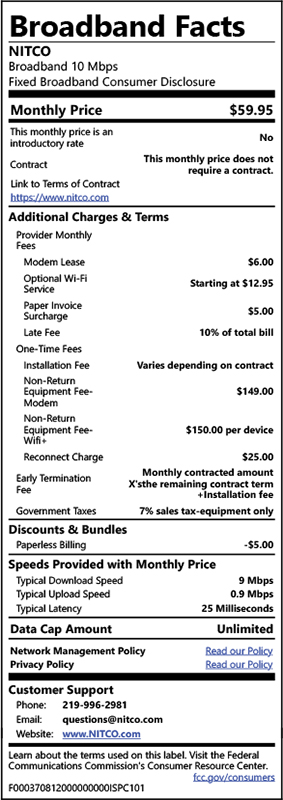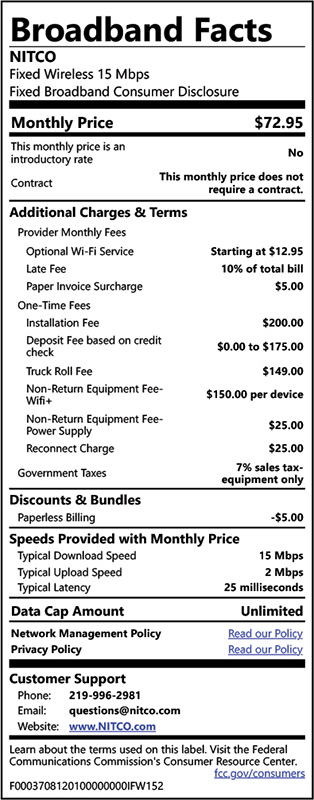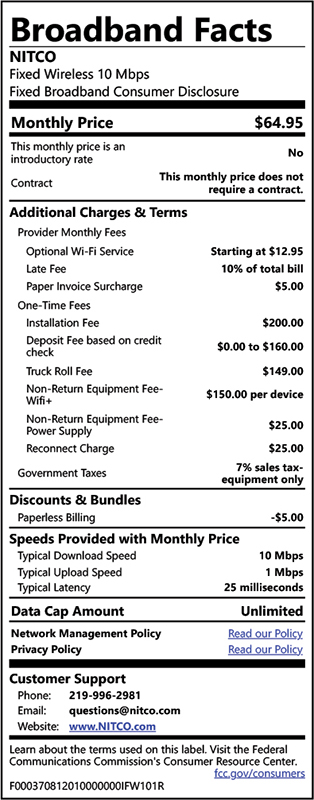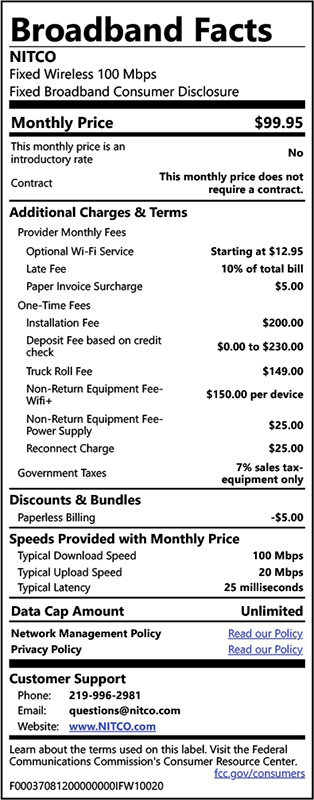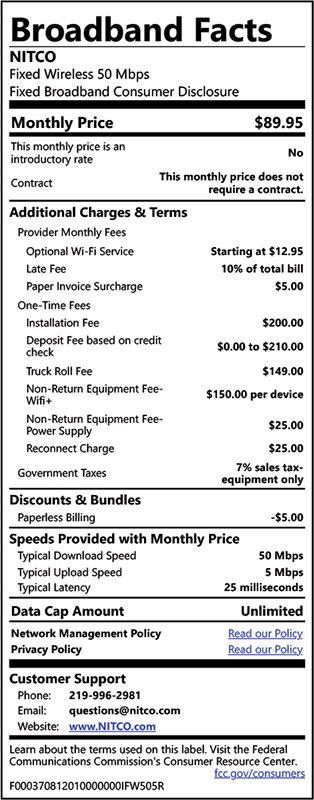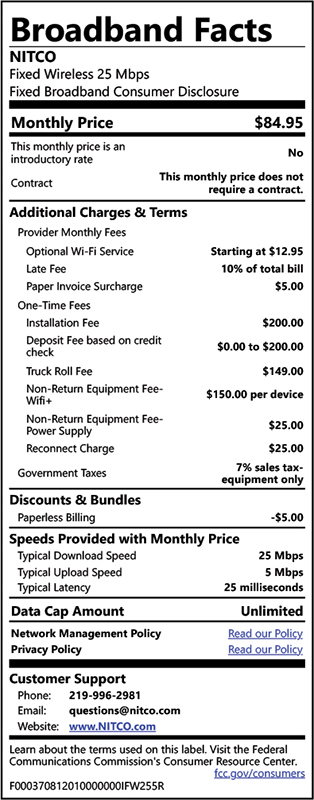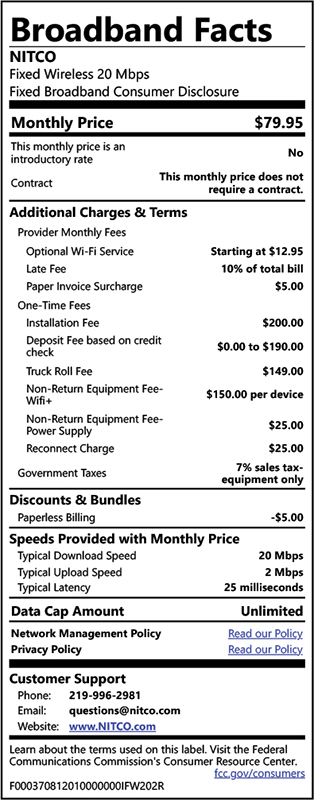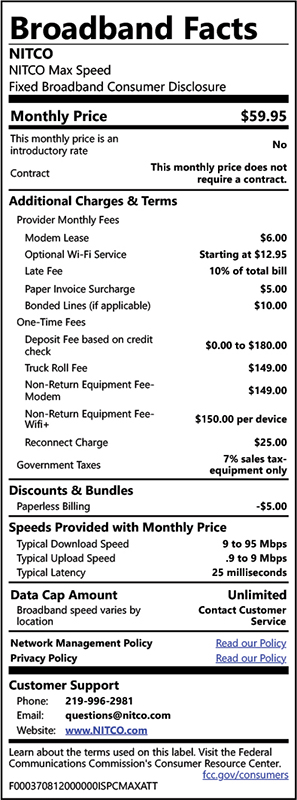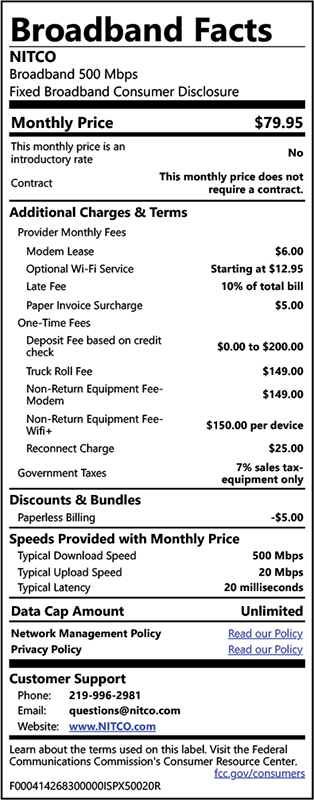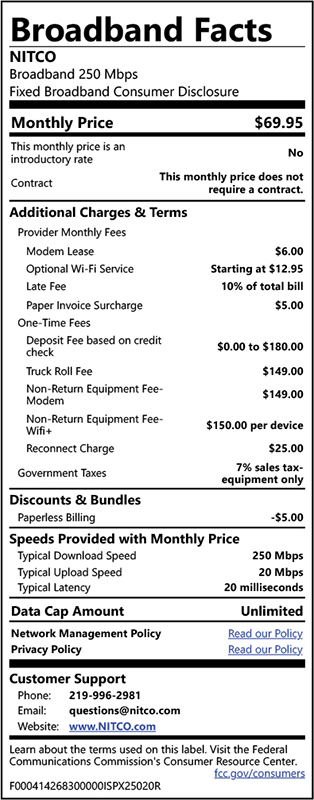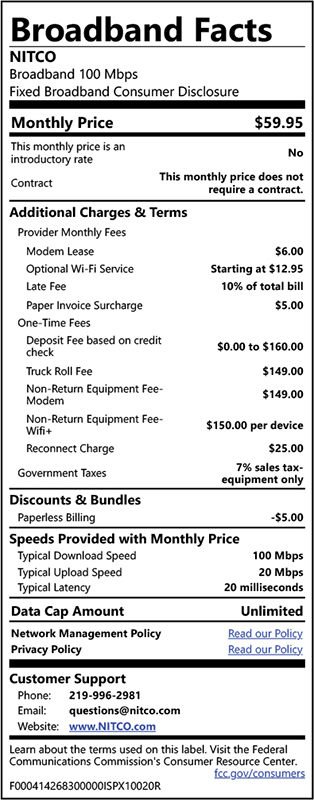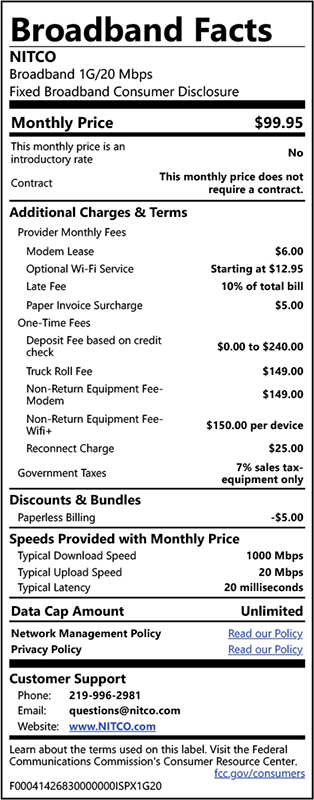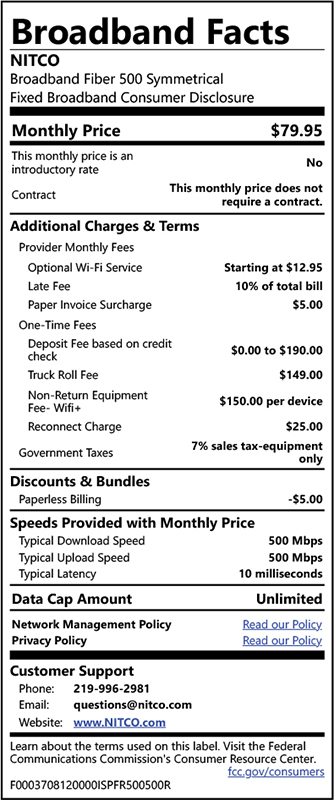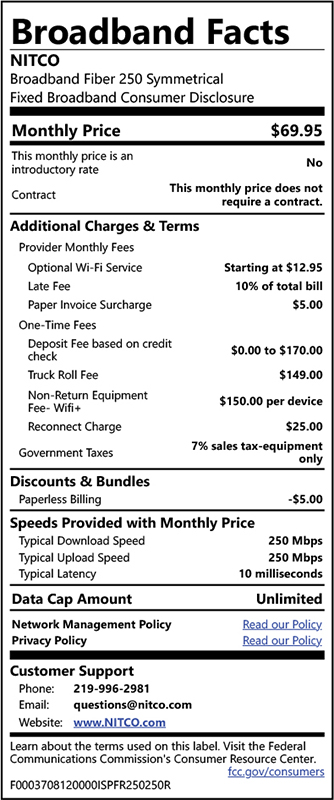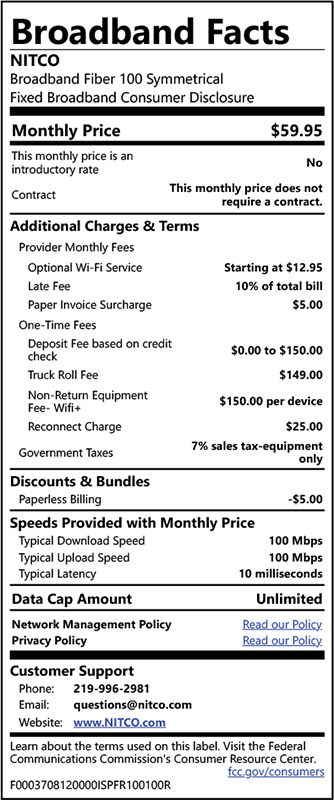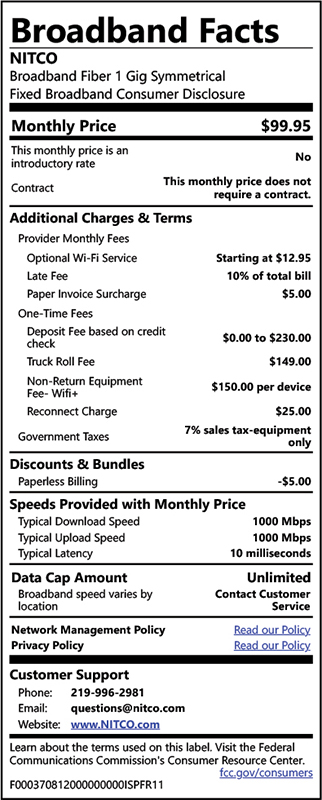BILLING
Frequently Asked Questions
The easiest way is to log in to your account here: My account
Charges for your local service and equipment are billed a month in advance. Charges for installing or changing equipment or services are billed on your monthly statement following completion of work.
All past due charges billed must be paid before your service can be reconnected. You will also have to reestablish your credit and as a result, we may require a reconnect charge as well as a security deposit. Before service can be restored, the customer is obligated to own their own telephone instrument(s).
Relay Indiana, a service of InTRAC, is a free service that provides full telecommunications accessibility to people who are deaf, hard of hearing, or speech impaired. This service allows users with special telecommunication devices to communicate with standard users through specially trained Relay Operators. InTRAC also provides free, loaned equipment to those who qualify.
EFT is an automatic payment method, which authorizes your bank to automatically deliver each monthly payment directly into your NITCO account. This payment method is available to our telephone customers who wish to participate, and there is no service charge and/or fee from NITCO for this service.
EFT offers you several advantages. Consider the following:
- You save the cost of checks and postage
- You receive a record of your payment on your check statement
- You know the exact date when your payment is made to us
- You don’t have to worry that your check has been delayed, lost in the mail, or misplaced
- Your payment is deducted on or about the 15th of each month — no matter where you are or what you are doing
You can go to your bank’s website and update your bank account. Call us or click here if you have a question.
Understanding Typical Charges
Taxes may be imposed by state, local, and municipal governments on goods and services, including phone service.
All telecommunications service providers must contribute to the federal Universal Service Fund, which helps people in rural and high-cost areas, and income-eligible consumers, get access to telecommunications services at reasonable rates through programs and initiatives such as the Connect America Fund, Lifeline and the E-rate program for schools and libraries.
- 911 – To help local governments pay for emergency services such as fire and rescue.
- Telecommunications Relay Service – To help pay for relay services that transmit and translate calls for people with hearing or speech disabilities.
- “Directory Assistance” – For placing 411 or (area code) 555-1212 directory assistance calls.
- “Monthly Calling Plan Charge” – For any monthly calling plan, such as unlimited long distance calling on your wireline bill or unlimited minutes on your wireless bill.
- “Operator Assisted Calls” – For calls connected by an operator. Rates for these calls generally are higher than rates for unassisted calls.
- “Features Charges” – For services such as call forwarding, three-way calling, call waiting, voice mail and caller ID.



